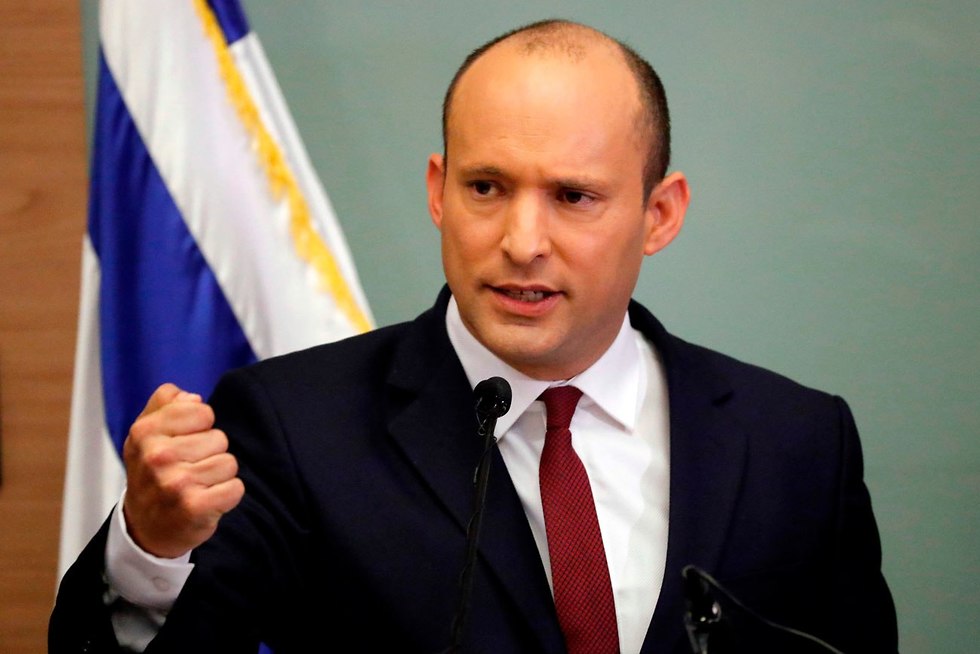
Who will replace Netanyahu?
Op-ed: Bennett folded like a cheap suitcase when he decided to stay in government despite his threats; no wonder Bayit Yehudi's supporters are in PM's pocket; the belief that Netanyahu is invincible is his greatest achievement—but in order to bring down the PM, we need to want an alternative.
Education Minister Naftali Bennett and Justice Minister Ayelet Shaked's decision to stay in government despite threatening to leave the coalition if leader Bennett doesn't receive the defense portfolio gave an adrenaline rush to the political system.
Bennett's maneuver, which began with a bang and ended with a whimper, elicited an expected reaction—scorn. An ultimatum, as its Latin name implied, is the last resort. If you give an ultimatum, you have to commit to it; otherwise, people might say you're all bark and no bite.
In many ways Bennett's failed maneuver was better than a thousand jokes about Hamas closing the gap between the minister's intimidation tactics and the reality in Gaza: Bennett is more than capable of giving threats, but with the first sign of trouble, he folds like a cheap suitcase. If this is the case with Prime Minister Benjamin Netanyahu, what can Bennett do in face of Hamas?
But beyond the mounting criticism of Bennett's character, all very justifiable if I may add, and beyond the profusion of mockery and insults, there are two political facts worth considering.
First, most of the Bayit Yehudi's supporters are in Netanyahu's pocket. This fact has become apparent during last elections, when right-wing settlers rushed to the ballot box and voted for the Likud.
Not that the Bayit Yehudi's stance is a less accurate representation of the religious-right's political worldview than the Likud's— it's not, but contrary to what Bennett hoped, right-wing voters don't consider his party as an alternative to the Likud, but rather a movement inside the Likud.
As long as the right-wing government is safe, these voters have no problem reinforcing their "own" movement. But if there is any indication of a future governmental collapse, they will not hesitate to vote for Netanyahu.
Various sources attested to the tremendous pressure the Bayit Yehudi exerted on Bennett to fold, whatever the price. They don't want to threaten Netanyahu. Why? This is a complex question. They don't want to threat the prime minister partly because he did a consistent job of adopting extreme right-wing rhetoric, which mainly consists of pride and blaming the left.
Right-wing religious settlers buy this kind of rhetoric. They are not blind to Netanyahu's inconsistencies—as mentioned before, the prime minister's actions are far less decisive than his rhetoric. But the settlers act on the basis of the assumption that since an agreement with the Palestinians is impossible, having the proper rhetorical skills is of great importance.
Netanyahu's rhetoric turns their worldview from "extremist" to mainstream. Only the prime minister, as the leader of the Israeli mainstream, can do it.
In the end, the psychological revolution Netanyahu is leading will also bear a more practical fruit—Netanyahu is paving the way for an unmistakable right-wing leader. But the work is yet to be completed.
Before it is completed, the premier cannot be disturbed. The leaders of the Likud's "movement" (Bennett and Shaked's Bayit Yehudi) can do much more under Netanyahu's command than alone. Therefore, one must ignore Netnayahu's faults. No right-wing settler is pleased with Netanyahu's corruption, but the goal, as it usually is for the righteous, justifies the means.
The second political fact that we must bear in mind is the growing sense among the Israeli public that there is no alternative to Netanyahu.
This feeling is strong not only among right-wing voters, but also among members of the center and the left. The latter certainly want to see the prime minister go. They despise him and wish for his political demise. But when asked who they want to see in his place, they are speechless.
None of the relevant candidates—Zionist Union Chairman Avi Gabbay, Yesh Atid Chairman MK Yair Lapid, Minister of Finance and Kulanu Chairman Moshe Kahlon, or even former IDF chief of staff Benny Gantz—inspire trust.
It's not that there is no substitute for Netanyahu. Each of these candidates (and you can think of others, right and left) can take his place. However, in order to bring down a prime minister, resistance is not enough. We need to want an alternative; otherwise we will choose parties that will only weaken the prime minister, not replace him.
Netanyahu's main strength is not his likability—only a few have witnessed it—but the belief that he is invincible. As long as this goes on, he will keep on winning.





















